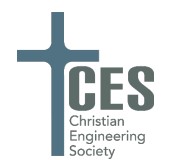Document Type
Paper
Abstract
Graduates from Engineering programs are heading into increasingly diverse communities in the United States and beyond. The ability of an engineer to effectively work with people from diverse cultural backgrounds is increasingly crucial--for the success of the engineer’s professional career, for the creation of ethical, culturally-responsive engineering solutions, and above all, for fulfilling the biblical mandate of loving our neighbors well and carrying out the great commission of making disciples of all nations.
The paper will present the approach taken at John Brown University Department of Engineering, which is to teach a required “Intercultural Problem Solving” class for engineering students. A biblical foundation is first laid out—that humans are created in the image of God and have been given the good task to shape their culture. Students engage in book readings and discussions about God’s call to love our neighbor, and that loving involves not just good intentions but culturally appropriate ways to engage in grace and truth. The usage of the Cultural Intelligence platform will be discussed—as a framework for students to self-assess their capabilities in intercultural situations, as well as for teaching various aspects of intercultural engagement. The class also teaches different cultural dimensions to help students associate common relational and work issues with cultural backgrounds and provide guidance in intercultural communication. The paper will highlight various aspects of the course including several case studies, role-playing activities, assignments and guest lectures that help achieve the course objectives.
Creative Commons License

This work is licensed under a Creative Commons Attribution-Noncommercial-No Derivative Works 4.0 License.
Copyright
© 2024 Myunghee M. Kim. All rights reserved.
Equipping Engineering Students to Reach the Nations—Undergraduate Course in Intercultural Problem Solving
Graduates from Engineering programs are heading into increasingly diverse communities in the United States and beyond. The ability of an engineer to effectively work with people from diverse cultural backgrounds is increasingly crucial--for the success of the engineer’s professional career, for the creation of ethical, culturally-responsive engineering solutions, and above all, for fulfilling the biblical mandate of loving our neighbors well and carrying out the great commission of making disciples of all nations.
The paper will present the approach taken at John Brown University Department of Engineering, which is to teach a required “Intercultural Problem Solving” class for engineering students. A biblical foundation is first laid out—that humans are created in the image of God and have been given the good task to shape their culture. Students engage in book readings and discussions about God’s call to love our neighbor, and that loving involves not just good intentions but culturally appropriate ways to engage in grace and truth. The usage of the Cultural Intelligence platform will be discussed—as a framework for students to self-assess their capabilities in intercultural situations, as well as for teaching various aspects of intercultural engagement. The class also teaches different cultural dimensions to help students associate common relational and work issues with cultural backgrounds and provide guidance in intercultural communication. The paper will highlight various aspects of the course including several case studies, role-playing activities, assignments and guest lectures that help achieve the course objectives.

